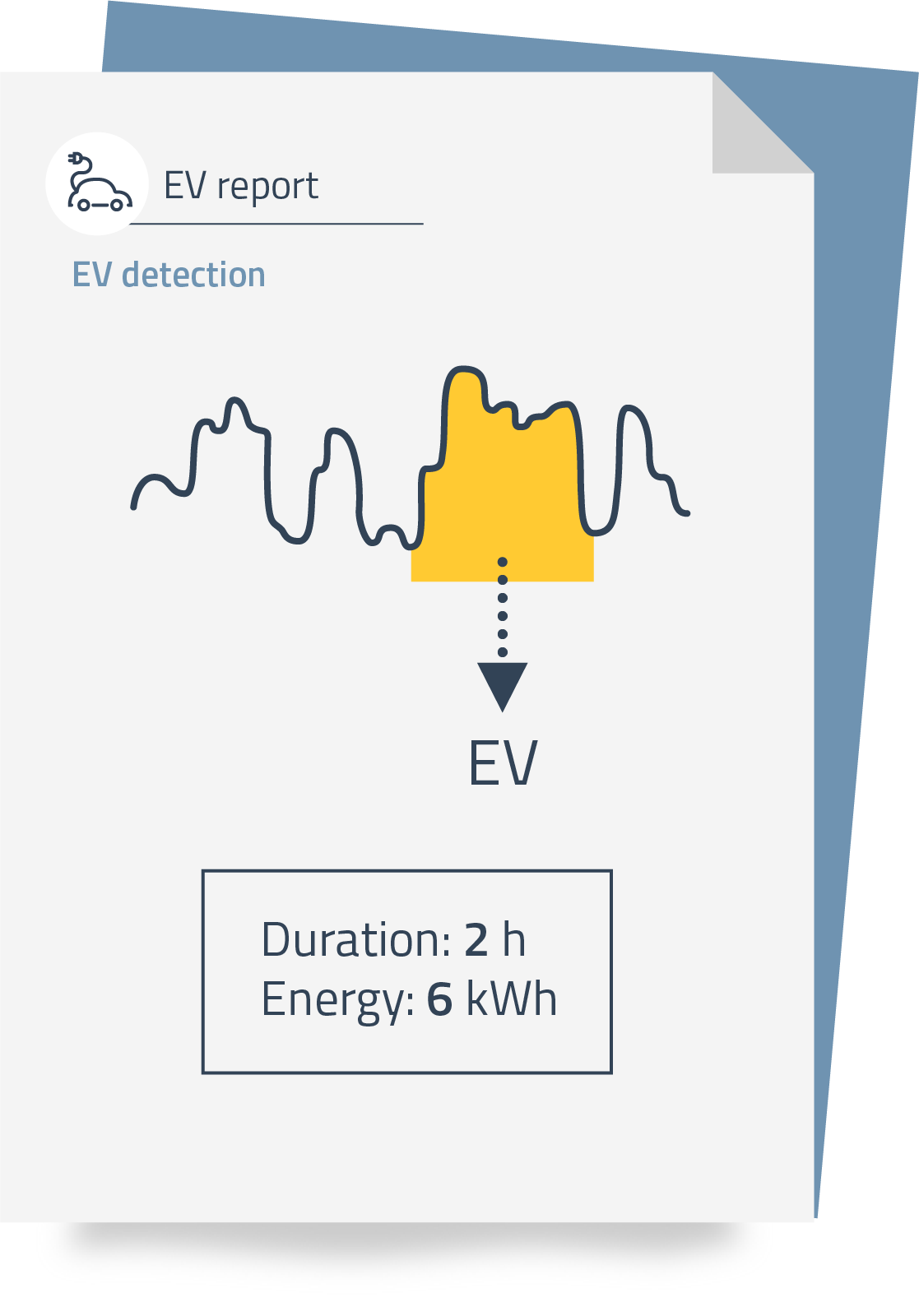Electric Vehicle Detection
NET2GRID's EV edge detection model is an advanced solution that uses edge computing to accurately detect EV charging patterns through smart meter data. It enables utilities and grid operators to manage the increasing energy demand associated with electric vehicles more effectively, and provides insights to the consumer about their actual energy consumption related to EVs.

Requirements
The EV edge model works on high granular 1 - 10 second power data. There is no configuration or learning period required for the EV edge model to work.
Events
There are two types of events generated by the EV edge model, described in the next to sections.
Start event
Based on the type of EV-chargers, start events are detected within a certain time. Low power EV-chargers are harder to detect, simply because there are more appliances that have roughly the same power consumption. The following distinction between the different charging events is made:
| Power level | Detection time | Remark |
|---|---|---|
| < 2.9 kW | 2 hours | Level 1 charging |
| 2.9 - 6.0 kW | 10 minutes | Level 2 charging (single phase) |
| > 6.0 kW | 5 minutes | Level 2 charging (multi phase if applicable) |
Minimum charging time before detecting and reportingNote that there is a minimum charging time for each charging type to be able to detected. A level 1 charging event that last for shorter than 2 hours is not reported.
Every start event contains relevant information about the charging, for example the charging power level.
{
"eventType": "start",
"start": 1687495227, // Unix timestamp
"level": 11000 // Watt
}Stop event
Once the start charging event is reported the EV will eventually stop charging. That moment in time will be reported with the stop event. More information will be included in the stop event, such as the total energy consumed during the detected event.
{
"eventType": "stop",
"start": 1687495227, // Unix timestamp
"stop": 1687505182, // Unix timestamp
"level": 11000, // Watt
"energy": 30.4181 // kWh
}Updated 6 months ago
